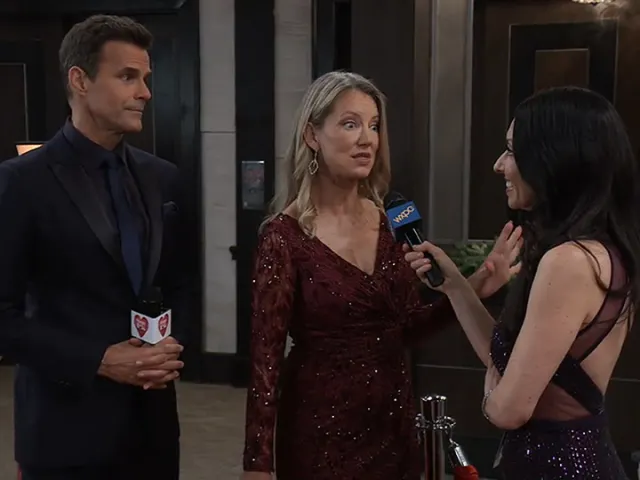Why 'Ex Machina' Will Be the Sleeper Hit of the Summer

Avengers: Age of Ultron is going to be released this Friday, and the world will once again be entertained by those plucky folks with extraordinary powers as they fight to take down a sophisticated A.I. (Artificial Intelligence). This is all well and good, but for the moment I would like to direct your attention away from the all-but-confirmed smash hit of the season and focus it, for a time, on another film that deals with the concept of man creating an artificial life form:
Ex Machina marks the directorial debut of Alex Garland, a man who’s previous work as a screenwriter gave us such films as 28 Days Later, Sunshine, and the most excellent sci-fi action flick Dredd. With this film, Garland gives us another look at what the future may hold for mankind and its (literal) machinations as he explores what happens when humans assume the role of gods. The movie features Domnhall Gleeson as Caleb, a computer programmer for a large internet company called Blue Book, who, as a result of winning a workplace lottery, has been given the opportunity to spend the week at the wilderness retreat of his CEO Nathan. Nathan, played by Oscar Isaac, is a seemingly fun-loving salt of the earth kind of guy who really enjoys his liquor and the concept of being bros. His odd personality aside, Nathan goes on to even further surprise Caleb with the revelation that he has succeeded in creating artificial intelligence. Caleb is then introduced to Ava (played wonderfully by Alicia Vikander), a beautiful fembot who quickly draws him into a world of mystery, beauty, and horror. His ongoing interactions with Ava will force Caleb to examine his perceptions of life and reality and whether or not they have been altered for better or worse. And if you’re not sold on that, then you should see it just for the awesome disco dance sequence (slightly NSFW):
Oddities and surrealism fascinate me, and as such, films like Ex Machina constantly draw my attention because they present reality with surface-level trimmings that give it the illusion of being familiar and somewhat accessible, and yet there is a purposeful disconnect that is usually brought on by a stylized tone that exists like a constant humming in the background that is not always entirely unpleasant. And no, I’m not just referencing the weird disco number that you just watched. The film has the look and feel of a Kubrick-ian effort with a dash of Terrance Malick added for good measure. It’s sterile beauty creates a kind of translucent shell that noticeably covers our film environment without obscuring it. To put it simply, there is beauty in the air, but there is something questionable about it. But questionable is not necessarily bad. Ultimately, the way the film is presented is, in fact, a large representation of its overall ideas and themes. I can’t tell you what a pleasure it is to come into contact with a fully-realized idea since the half-baked ones tend to rule the land as of late.
The film wastes no time and comes to the point pretty early on, so do not be surprised to find you know very little about anyone in the film. Caleb is a seemingly decent enough person and serves nicely as our tour guide through this elegant thriller. Domnhall Gleeson’s performance here is quite good, and we, as an audience, have no trouble seeing the story through his eyes and allowing for his doubts, fears, desires, and his curiosity to wash over us. Oscar Isaac turns in another A+ performance as Nathan, a charming and gregarious fellow who is himself a sort of walking and talking contradiction. Nathan has created life from seemingly thin air. You would think that such an achievement would bring happiness to a person, and Nathan does walk around with a pretty hilarious carefree attitude about the whole thing. But then why is he drinking himself into oblivion night after night? Perhaps Nathan is secretly disturbed by his creation because he sees it as an eventual end to our way of life as we know it. Or maybe his sadness lies in the revelation of his own ugliness through his interactions with Ava...
If a robot feels, then do they feel the way a person does? If a robot is programed to feel happy when they see a sunset, does that mean their feeling is any more or less valid than a person who comes by it naturally? After all, as Nathan mentions, everything that we think and feel is the result of years of conditioning ranging from direct teachings to subconscious reactions to our environment that we are probably not even aware of. When you break it down like that, there seems to be little romance or mystery left in this thing we call Life, but that is not the case, and the movie itself is, again, an excellent representation of that. It is a film filled with questions and very few, if any, answers. Such a cerebral journey may sound boring in comparison to some of the big-budget movies of the Summer that are on the horizon, but I can assure you that a movie like Ex Machina is no waste of time. This is an emotionally searing kind of film that has the added bonus of making you question your fervent emotions as you are experiencing them. Escapist fantasy is certainly a wonderful thing whose place in this world needs no defending. But it’s nice to dial it down every once in a while to make room for subtle works of beauty that exercise the mind as well as the adrenal glands. Ex Machina is one of the best films I’ve seen so far this year, so heed my advice and see the jewel on the silver screen while you have the chance.
(Screenshot via YouTube)
- Greg McIver, YH Staff



